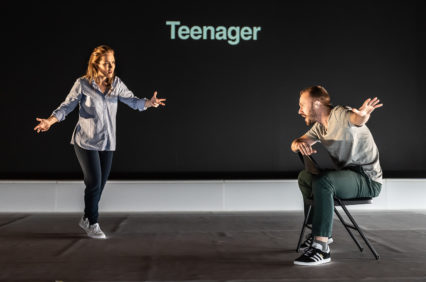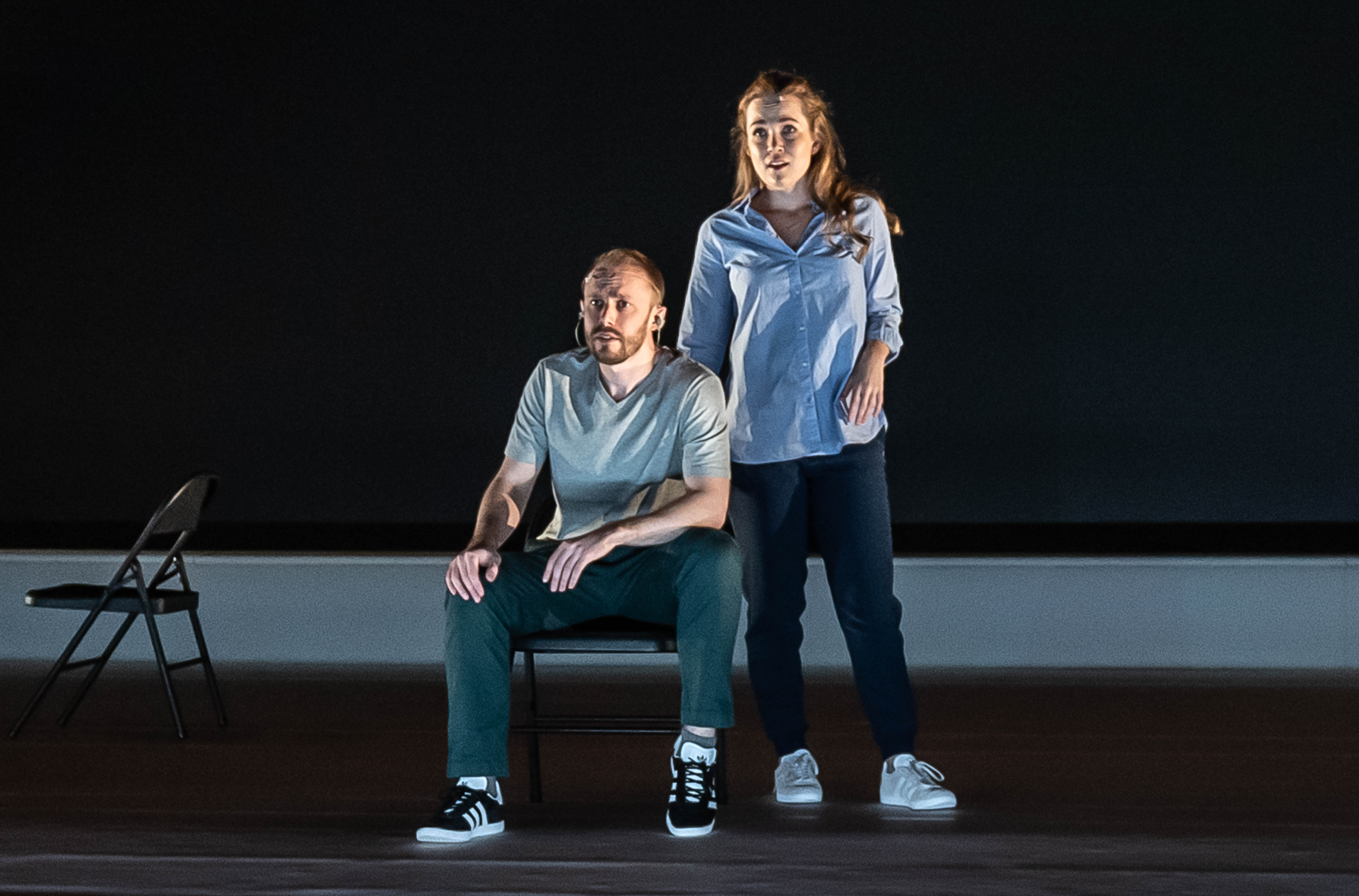David Truslove attended a London showing of Philip Venables’ disturbing new opera from Music Theatre Wales; Denis & Katya.
The last days of Denis Muravyo and Katya Vlasova, two Russian teenagers who became an internet sensation in 2016, and whose story has been reconstructed in operatic terms, prompt a clear link with Andy Warhol’s supposed 1968 utterance “In the future, everyone will be world-famous for 15 minutes”. Securing their own fame, the alienated pair, both with troubled family backgrounds, are the central focus of a new chamber opera by British composer Philip Venables and American writer/director Ted Huffman – a Romeo and Juliet style tragedy which received its UK premiere at the Riverfront in Newport, Wales and last week was given at London’s Purcell Room.
Co-commissioned by Opera Philadelphia, Music Theatre Wales and Opéra Orchestre Montpellier, in association with London Sinfonietta, Denis & Katya pieces together digitalised text, video and music to form an exploration of how a real-life story can be shaped and shared in our age of 24/7 internet connection. As well as being an immersive documentary-style work, this staging is conceived as a broadside against contemporary society’s obsession with social media and its vicarious entertainment. It’s a polemic against internet culture, the abuse of social media and the ongoing breakdown of society. Venables himself adds “The opera is really about voyeurism,” and is clearly an attack on those who have followed the demise of the two runaways via social media in real-time, and those associated with the international press who covered the story.

Following on from the success of Venable’s award-winning opera, 4.48 Psychosis, Denis & Katya recounts the runaway couple’s last days when they barricade themselves in a remote cabin and begin live streaming every detail of their drink-fuelled ordeal via the social media website Periscope. Three days later, and under threat from police and Russian Special Forces, a fatal outcome brings an end to their widely broadcast misadventures. Are they shot by the police or do they kill themselves? We do not witness events in any conventional operatic curve, we are told about them. Venables and Huffman resist transmitting their narrative directly (Denis and Katya never appear on stage as individual characters) but their exploits are presented through passages drawn from verbatim texts intercut variously from a friend, journalist, neighbour, medic and teachers. Together they build up a collage of sung and spoken accounts, flashbacks and memories, six different viewpoints, interleaved with razor-sharp precision. But from this assemblage of fact and reminiscences, only a misshaped truth remains.
The result is a strikingly original work, 65 minutes of kaleidoscopic music theatre economically scored for four cellos and two solo voices. Behind the four London Sinfonietta cellists, spatially separated at the four corners of a mostly bare stage, text messages are projected onto a large screen. Baritone John Herford and Mezzo Emily Edmonds superbly project all the characters in short sung episodes frequently alternating with spoken text – the voice of Neighbour and Teenager sung in Russian and then translated into English so as to reflect the life-streaming immediacy of events. The extended video of the village of Strugi Krasnye seen from an accelerating train is a moving experience and comes as a relief after so much frantic visual and sonic activity. Precisely timed lighting changes, courtesy of Andrew Lieberman, and split-second sound engineering from Rob Kaplowitz are all perfectly synchronised.
Musically, Venables fashions an accessible idiom in a musical language that is concise, spare and periodically occupying a bittersweet lyricism. The quartet of cellos accompanies and elaborate on the vocal lines, in short, irregular paragraphs which form a parallel commentary on the constantly shifting perspectives of those retelling events. The score is bookended by a spoken introduction (mirroring an overture?) and closes with a beautifully baroque-style lament that forms an emotional high-water mark, an extended coda, if you will, of uninterrupted counterpoint between cellos and voices that highlight Venables undoubted lyrical gifts. It’s an extended reflection on the impact of the ‘private’ ordeal and public demand for news, fake or otherwise.
Clearly ideal for touring opera, Denis & Katya should be considered an essential repertoire for all enterprising directors willing to hold a mirror up to young audiences unfamiliar with the operatic expression. Who knows, assuming normal life will eventually return, maybe Venable’s work will go viral?
Header photo credit: Clive Barda











